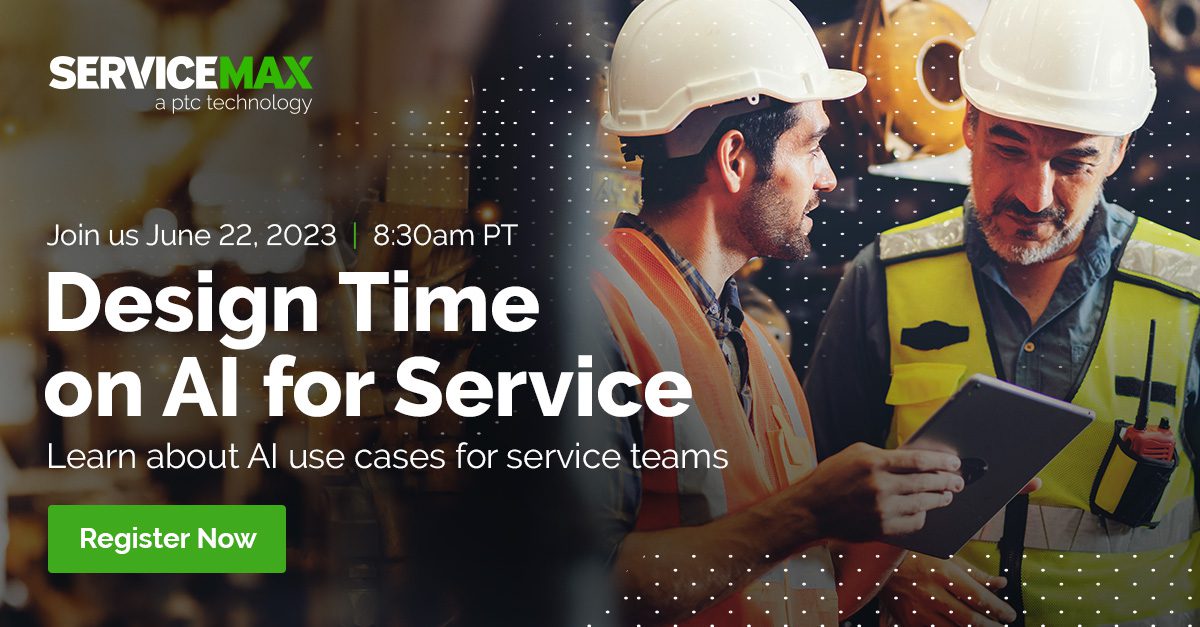ChatGPT is a hot topic as of late, and the buzz isn’t unfounded. There are huge opportunities for generative AI engines, such as GPT-4 that powers ChatGPT, to transform how things are done in a variety of industries, and field service is no different. The following five areas are great examples of how generative AI tools like ChatGPT can improve operations and even solve some of the field service industry’s toughest challenges.
1. Making Knowledge Easily Accessible Onsite
The most successful adaptation of GPT is in the form of chat itself. And this can make a big difference in the ease of accessing information while on the job site. Say a technician is working on a complex piece of equipment and has a specific question about what they need to do. Normally, they would have to pull up the manufacturer’s product manual and spend time searching through it to find the answer they are looking for. With AI like ChatGPT, the service technician can simply type their question, and let the AI search for and deliver the answer in a matter of seconds.
What’s special about generative AI, such as ChatGPT, versus other interactive AI, such as Siri or Alexa, is that it’s a very engaging experience. It feels like you’re talking with a very knowledgeable person or colleague, and it remembers the context of what it’s learned previously. As long as the chat experience can be interactive, allowing technicians to ask questions and build off of the responses, it will be incredibly valuable to frontline workers.
2. Removing Admin Work
The AI that powers ChatGPT is incredibly good at consuming unstructured data and generating content. This has a huge scope for field service. The language comprehension in GPT AI means technicians can take down a few notes and the AI can use that content to generate a report. This means field engineers can automate the mundane work of writing and summarizing what they’ve just done when they complete a job.
For service technicians, any practical tool that saves them time means they’ll use it. Depending on how well GPT delivers on its promise, such content generation could eventually be used for customer-facing content, as well as educational, upselling and personalized cross-selling content.
3. Enabling Self-Service and Support
Customer self-service has the potential to become a game-changer for how organizations structure their service strategy and service operations. If equipment can be repaired or maintained remotely with the help of remote support engineers, it will save on truck rolls, overhead costs and CO2 footprint.
Where AI comes in is its ability to generate content as well as triage service requests. When a service request comes, rather than scheduling an onsite visit, the customer can be guided through a self-service process to fix this issue. This is something companies have been trying to roll out, but it hasn’t been too effective yet. AI may be that missing piece that effectively guides the customer through the process with better information and interactive responses for next steps. It can also be used to aid remote service engineers who are brought in to remedy the problem. They can take advantage of content generation, with the AI summarizing the work that is taking place, as well as leverage its recommended solutions and next steps. This content will continue to be useful as a reference for future service visits or partners that are involved in the service process.
[Register to Join Our Upcoming Design Time webinar on AI for Service on June 22]
4. Capturing Tribal Knowledge
Much of the field service workforce is nearing retirement which means that we are losing their expertise, their knowledge and their ability to complete work. In this regard, ChatGPT can be transformational. It can help organizations capture and organize the unstructured knowledge and experience of the seasoned workforce and make it accessible in a format that is desirable for the next generation of workers.
As opposed to viewing paper manuals, calling a friend, and completing countless forms to close out a service job, an engineer can access relevant and contextual information via a query, with work instructions overlayed visually via Augmented Reality, and work summarized and documented via generative AI. AI tools such as ChatGPT, if properly equipped with all the right data, can become a subject matter expert, providing that much-needed knowledge guidance either onsite or remotely.
5. Recruiting the Next Generation of Workers
Field service has a major workforce recruitment and retention problem. As the workforce nears retirement, there is a growing void that is not being filled by new entrants. The newer generations of workers aren’t too interested in the type of work being done in field service as it stands now.
The potential entrants are digitally native, they’ve grown up on the tools of today and are constantly tinkering with the likes of ChatGPT. Organizations must be able to provide these technologically-savant workers with the tools, information, and working models that they are already familiar with to make the profession of field service more relevant. If organizations can provide them with a way to engage with the experience and knowledge of former generations to become more proficient in the craft, open up new opportunities for learning and growth, and create working opportunities that could be remote-first or data-focused, then it changes the profile of what a career in field service looks like.
It may seem futuristic, but this is the type of vision for field service that organizations need to create a marketable product for the next-generation workforce.
Closing Thoughts on ChatGPT AI
Field service management companies are already at the exploratory stage, looking at how GPT can be worked into field service management products through active R&D, incorporating it into what’s working now, and making it even better. It’s moved from labs to consumers and it’s just a matter of time before it becomes embedded into frontline tools.
By feeding AI tools with rich, accurate asset data and a system of record on how a piece of equipment has been serviced and maintained, companies can better manage the productivity and efficiency of both their operations as well as their service technicians.
So, the question is, are you ready to take advantage of generative AI to deliver better outcomes and attract the next generation?



I am interested in AI for my personal use. I think it can be a great tool in the aviation field. It could probably help in troubleshooting aircraft malfunctions. Again, I must state this is for my personal use.